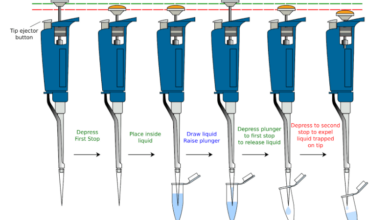What Does The Federal Deposit Insurance Corporation Do Weegy

If What Does The Federal Deposit Insurance Corporation Do Weegy you’re reading this, it’s likely because you’re worried about your bank. And if that’s the case, you’re not alone. In fact, more than 30 million Americans are now bank customers who have taken out a mortgage, opened a credit card, or applied for a loan from a federal financial institution. What does the Federal Deposit Insurance Corporation do? FDIC is a government agency that provides deposit insurance to American banks. This means that if your bank fails, the FDIC will pay off all of your deposits—no matter how large they are. In other words, if you have $10,000 in your checking account and your bank goes under, the FDIC will still reimburse you for that $10,000. So what happens if my bank fails? If your bank fails and you have uninsured deposits (deposits with no FDIC protection), then you may lose everything—even if you have only had possession of your money for a few minutes. uninsured deposits are often called “crimson necklaces” because they can put so much stress on people during financially difficult times. In short: The Federal
What is the FDIC?
The Federal Deposit Insurance Corporation (FDIC) is a government-owned corporation that was created in 1933 to protect the deposits of American banks. The FDIC insures deposits at member banks up to $250,000 per account. In order for a bank to become a FDIC member, it must be federally insured and adhere to certain safety and soundness requirements.
What does the FDIC do?
The Federal Deposit Insurance Corporation (FDIC) was created in 1933 as a government-owned corporation to protect the interests of the public by providing deposit insurance for member banks. The FDIC insures deposits up to $250,000 per account. If a bank fails, the government pays out those insured funds first. The FDIC also helps provide financial education and resources to help Americans better understand their banking options.
How does the FDIC protect depositors?
The Federal Deposit Insurance Corporation (FDIC) was created in 1933 to protect the depositors of failing banks. The FDIC is a government-sponsored corporation with a mandate to maintain the safety and liquidity of the banking system. The FDIC provides deposit insurance to consumers and businesses, as well as guarantees deposits up to $250,000 per account. In order to qualify for protection, banks must meet certain financial stability requirements and submit to regular inspections by the FDIC. The FDIC also monitors banks for any signs of improper behavior and takes appropriate action if necessary.
How does the FDIC respond to bank failures?
The Federal Deposit Insurance Corporation (FDIC) is a government-run financial institution that safeguards the interests of consumers by providing deposit insurance for banks and other depository institutions. The FDIC insures up to $250,000 per account per depositor, in addition to up to $250,000 per individual share account. If a bank fails, the FDIC will provide coverage for all deposited funds up to the limit insured.
In order to qualify for FDIC protection, banks must adhere to stringent regulations set by the FDIC. These regulations include requiring banks to maintain capital reserves equal to at least 10 percent of their total deposits, and prohibiting banks from engaging in speculative activities. In addition, the FDIC imposes limits on how much low-income individuals may withdraw without incurring fees.
The FDIC also monitors bank compliance with its regulations What Does The Federal Deposit Insurance Corporation Do Weegy and takes action against banks that do not meet standards. For example, in 2010 the FDIC fined Bank of America $16 billion for misleading customers about its risky mortgage products.
Conclusion
In the United States, the Federal Deposit Insurance What Does The Federal Deposit Insurance Corporation Do Weegy Corporation (FDIC) is a government-owned corporation that was created in 1933 to provide financial protection for depositors of banks and other depository institutions. The FDIC insures deposits up to $250,000 per account holder. If a bank fails, the FDIC will pay out all of its insured deposits within 10 days.




